Boarding house of death of Dorothea Puente
Categories: North America
By Pictolic https://pictolic.com/article/boarding-house-of-death-of-dorothea-puente.htmlAppearances are deceiving, and seemingly harmless and sweet people can hide bloodthirsty monsters inside. Maniacs rarely look like merciless killers, so they easily find victims. Sweet old lady Dorothea Puente has nine human lives on her conscience. This grandmother spent her last days not at home with her grandchildren, but in a prison cell, serving a life sentence.

Dorothea Puente, née Gray, was born in Redlands, California on January 9, 1929. Her parents were alcoholics leading an antisocial lifestyle. The family had many children, but the father and mother had no time for their offspring, so the children were poorly dressed and malnourished. Soon after Dorothea's birth, the head of the family died of tuberculosis.
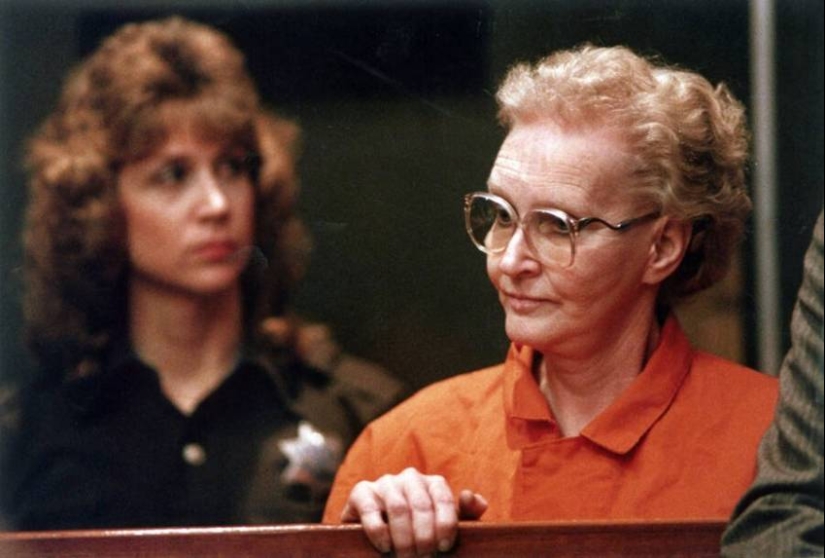
A year later, the girl’s mother was deprived of custody of the children due to alcoholism and prostitution. Dorothea and her siblings ended up in an orphanage. It wasn’t so hungry there, but it didn’t smell like a happy childhood either. As a teenager, Puente was a victim of sexual abuse at the hands of staff.
At the age of 16, Dorothea's childhood ended just as it had begun - she began to earn a living with her body. And soon she married one of her clients, soldier Fred McFaul, who had returned from the war. She gave birth to her husband two daughters and, it seemed, all the storms of life were left behind, and in the future there was only a happy family life.
But Dorothea was already incorrigible. She began to cheat on her husband, and soon the family broke up. Both parents abandoned their children - one daughter went to McFaul's mother, and the second was adopted by a childless family. Dorothea, who did not want to work, found a simple way to live comfortably - she began to forge documents. Very soon she was caught and she was sentenced to 4 months of arrest and 3 years of probation.
Once freed, Dorothea moved to San Francisco. There she married sailor Axel Johansson. It’s interesting that her husband knew absolutely nothing about her. The woman pretended to be a Muslim from Egypt and used false documents during her marriage.

While her new husband was sailing the seas and oceans, Dorothea was losing his money in casinos and taking men home. And then she completely organized a brothel, hiding it behind the sign of an accounting office. The “business” was exposed, and its owner received a second, three-month prison sentence. Having freed herself, Dorothea went on a drinking binge and once tried to take her own life. Her husband took her to a psychiatric clinic, where the patient was immediately diagnosed as a pathological liar with an unstable character.
While doctors were trying to put the young alcoholic’s psyche in order, her husband filed for divorce. Dorothea left the clinic as a free woman, but after a couple of months she got married again. Her new husband was 21-year-old Robert Puente, under whose name the woman “became famous.” It was the shortest marriage in Dot's life - it lasted only one year.
The next stage of Dorothea Puente's life again showed hope that she had finally come to her senses. The woman moved to Sacramento and took a job as manager of a nursing home. Soon she met her fourth husband, 53-year-old Pedro Montalvo.

The new husband introduced Dorothea to the Latino society of Sacramento. She became a regular participant in various events and charitable events. Large sums of money passed through Puente's hands, some of which she shamelessly stole. In 1978, Dorothea was caught forging checks and given five years probation. After the trial, the woman was sent for compulsory treatment to a clinic, this time with a diagnosis of schizophrenia. The husband immediately filed for divorce.
It is interesting that all these facts of Dorothea’s biography did not prevent her from continuing to head the nursing home. In the early 80s, she became its full-fledged owner. In 1982, 61-year-old Ruth Monroe, with whom Puente was friends, died in a boarding house. Shortly before her death, she said that she had some savings and wanted to become a friend’s business partner.
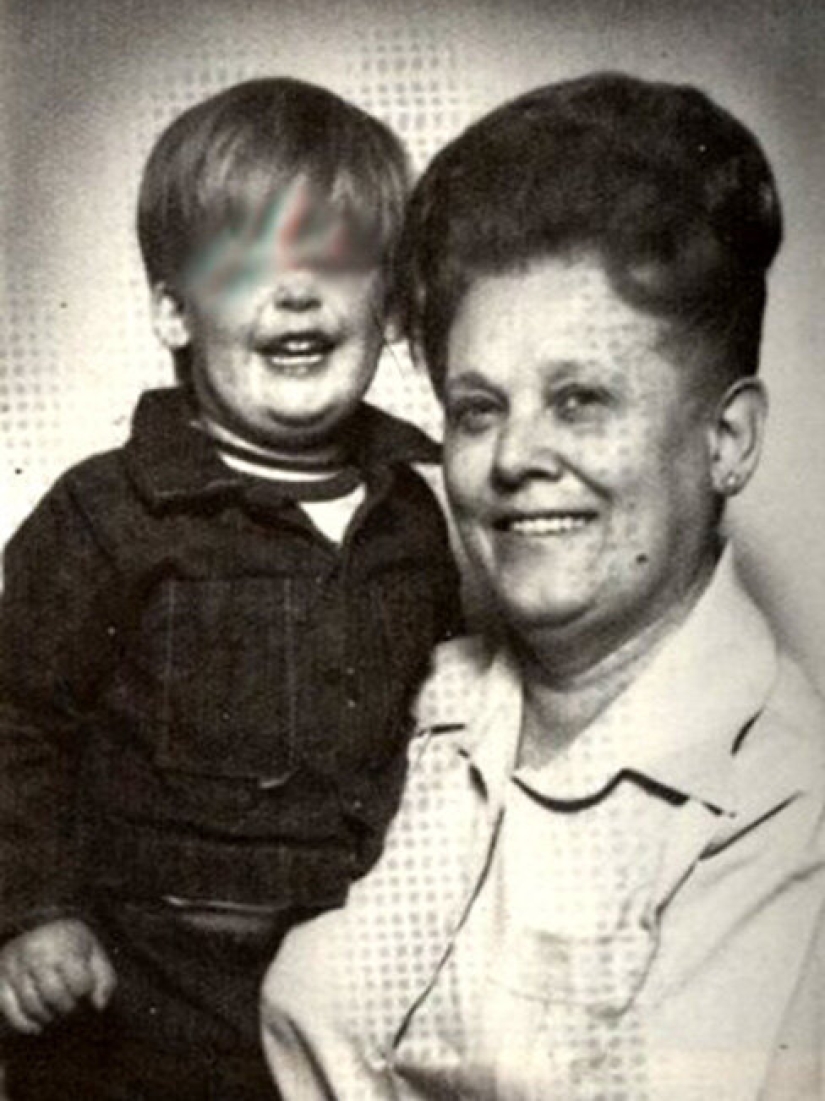
An examination showed that death was caused by a drug overdose. Everyone considered this incident an accident, because Monroe was depressed due to her husband’s serious illness. But the investigation accidentally revealed that Puente was shamelessly robbing the elderly from her establishment, appropriating their property. The police proved 4 episodes and Dorothea was sentenced to 5 years in prison.
She was released early just a couple of years later for good behavior. Her case included a ban on doing business with the elderly - this was one of the conditions for her release. At the prison gates, the elderly repeat offender was met by 77-year-old Everson Gillmut, whom Dorothea met by correspondence during her imprisonment. Things were moving towards the wedding and the happy newlywed even gave his bank cards to his beloved.
It was his mistake that cost his life. A few months after the first meeting, Gillmut's body was fished out of the river. The corpse of an elderly man surprised even seasoned cops. He floated downstream in a makeshift coffin made from old furniture, wrapped in plastic instead of a shroud and covered with mothballs. But the body could not be identified, and it lay in the Sacramento morgue for three years.
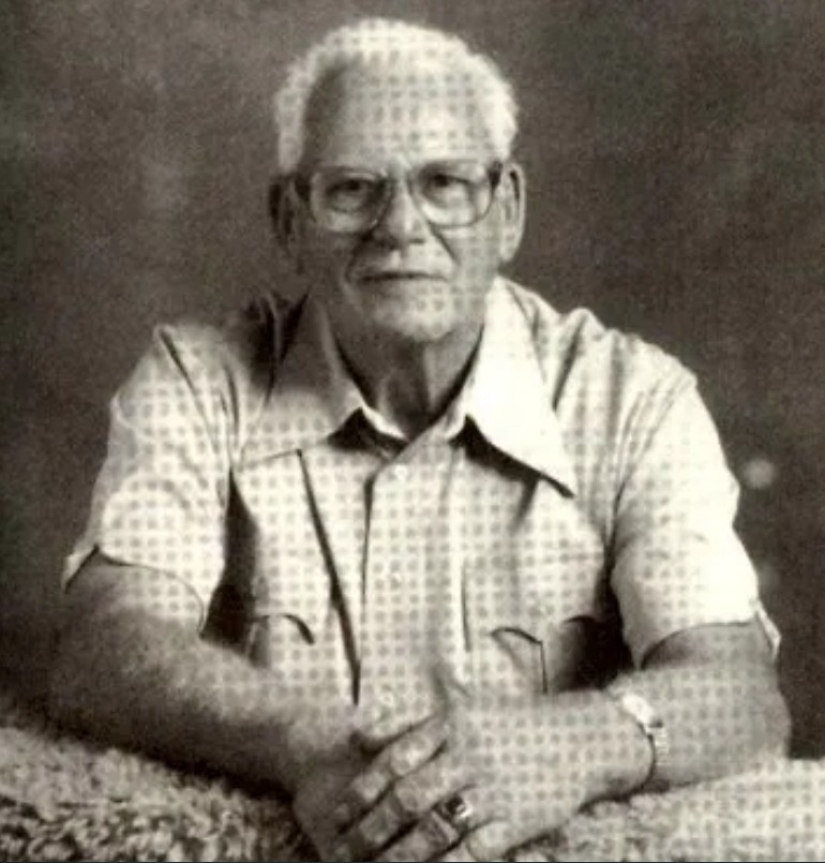
Yes, Dorothea dealt with her fiancé in order to take over his bank accounts. So that they would not look for Gillmut, she wrote a letter to his family, in which she complained that he had run away and had not been home for three months. Having received the money, Puente decided to reopen the boarding house for the elderly, despite the ban. She forged a number of documents and got the social service to transfer 19 pensioners under her care.
Dorothea bought a nice blue cottage and settled her charges in it. These were troubled old people, among whom were mentally ill, alcoholics, drug addicts and former prisoners. They all had one thing in common - they were lonely or their relatives did not even want to hear about them. For each pensioner, Dorothea received social assistance from the state.
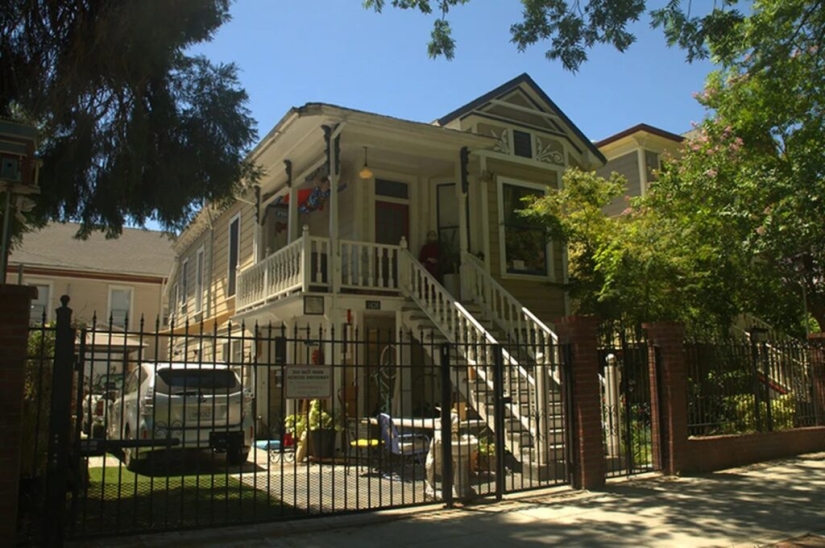
The residents of the blue cottage behaved quietly, and their owner established herself in the area as a quiet, sweet woman. There was only one problem - there was an unpleasant smell near the boarding house. He was noticed by everyone who approached the cottage. In response to questions, Puente apologized and said a faulty sewer system was to blame. She can’t put it in order yet, because she can’t afford it. This answer suited everyone.
But on November 11, 1988, the police raided the Puente boarding house. Detective John Cabrera and his two assistants were looking for her guest, Alvaro Montoya, a schizophrenic patient. His relatives suddenly came to his senses, wanting to draw up some documents. Of course, Alvaro was not there and Dorothea promised to inform the cops when he appeared.
While leaving the boarding house, the police noticed an unpleasant smell and dug up earth in the corner of the yard. There was a shovel nearby and Officer Cabrera decided to try his luck. He started digging in a suspicious place and soon discovered first rags and then human remains.

Detective John Cabrera pulled a severed hand from the ground. Hearing the noise and disturbance, Dorothea jumped out into the yard and stared with all her eyes at the hand of the dead man. She gasped and almost fainted, muttering only: “I thought it was dead rats that stank.”
The police began drilling slabs in the courtyard of the boarding house. One by one, seven corpses were pulled out from different parts of the backyard of the boarding house. Some of the dead were missing arms and legs, one dead woman had her wrists taped together, and the watch on another's wrist was still ticking.

Dorothea Puente watched the yard work with excitement. As they neared the end, the woman approached the officers and asked if she was under arrest. Having heard that there were no complaints against her, Puente told everyone that she was going to have coffee at a shop on the next street. Lightly dressed, in a red coat and with a matching umbrella, the woman left. By evening they missed her, but there was no trace of Dorothea.
The killer drank her coffee, boarded the bus and left Sacramento. She made it to Los Angeles, where she decided to lay low. Only Dorothea only had a couple thousand dollars of money. Something had to be decided, for example, getting married again. Three days later, she met 59-year-old pensioner Charles Willgus in a bar.
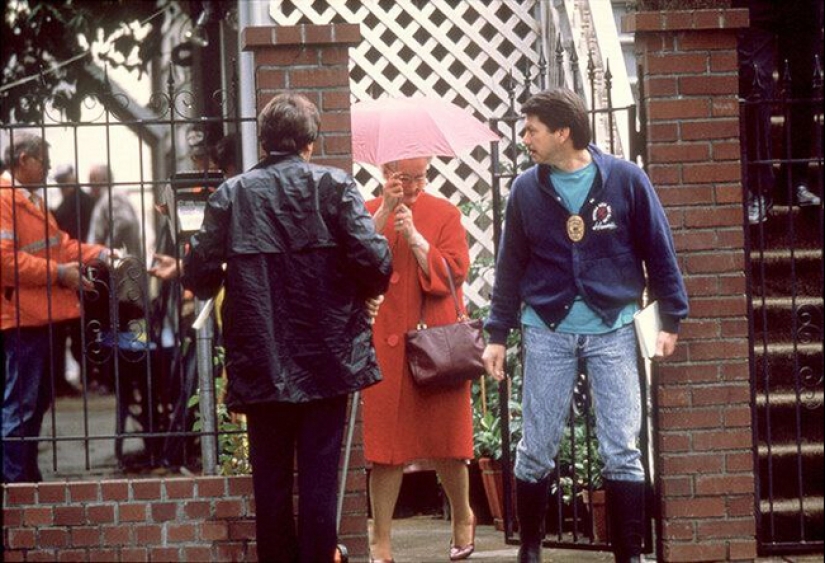
Two loners met for a simple and sweet reason. Dorothea's heel broke, and noble Charles volunteered to take the shoes for repairs. When he returned, a casual conversation ensued between the new acquaintances. The woman, by the way, inquired about the size of Villhuis’s pension and mentioned that she was single and loved to cook. Everything would be fine, but the man had an uneasy feeling that he had already seen the face of this intelligent woman somewhere.
This was no wonder, since Dorothea was wanted, and her portrait was shown on all television channels in the state. That evening the man saw him on the news and understood everything. Charles went to the police and the police came to Dorothea on their next date. She was arrested on charges of 9 murders. On March 31, 1989, the first court hearing took place.
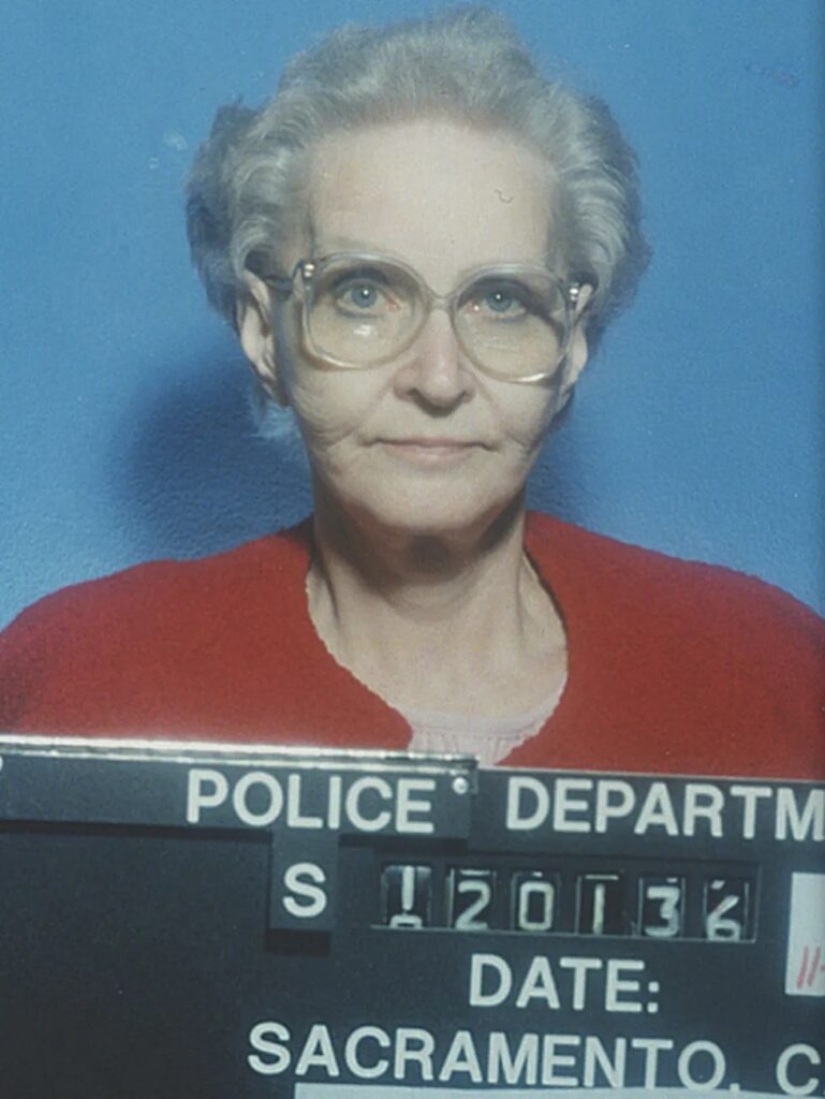
The case was so large-scale that its hearing took as long as 4 years. The owner of the boarding house killed the guests with large doses of drugs. She added poison to cookies that she baked herself. The killer buried the bodies in the yard under cover of darkness. But she did it very poorly, since she was not used to physical labor. The motive was simple - after the death of the old people, Dorothea received their pensions and assistance from the state.
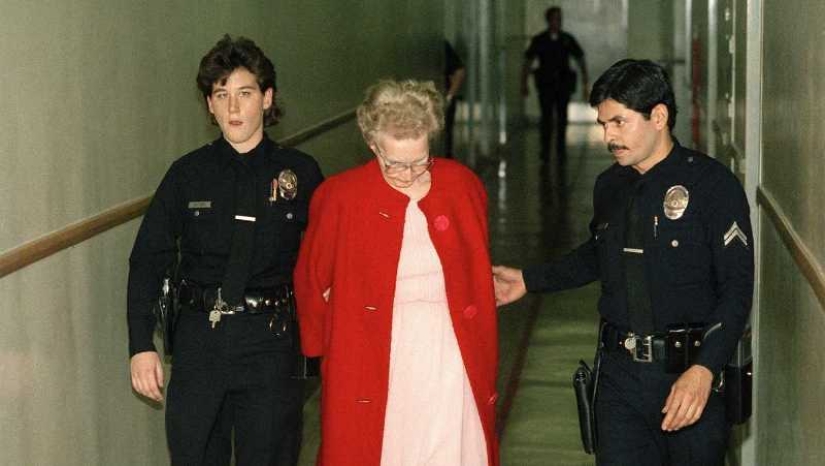
As a result, Dorothea Puente was sentenced to life imprisonment without the possibility of parole. But at her age this was not a very important nuance. On March 27, 2011, the killer died in a prison hospital from a heart attack. She was 82 years old.
Dorothea Puente is not the only famous grandmother killer. In Europe she had a “colleague” - the poisoner Elfriede Blauensteiner.
Recent articles

Corgi… these are Possibly the cutest things on the planet! No wonder that after these dogs prefer Queen Elizabeth… Her Majesty ...

For a long time the dog lived side by side with a man. From a wild beast, she went all the way to an irreplaceable friend who is ...

American photographer Elmo Tide is a significant figure in the world of street photography. The master regularly publishes books of ...